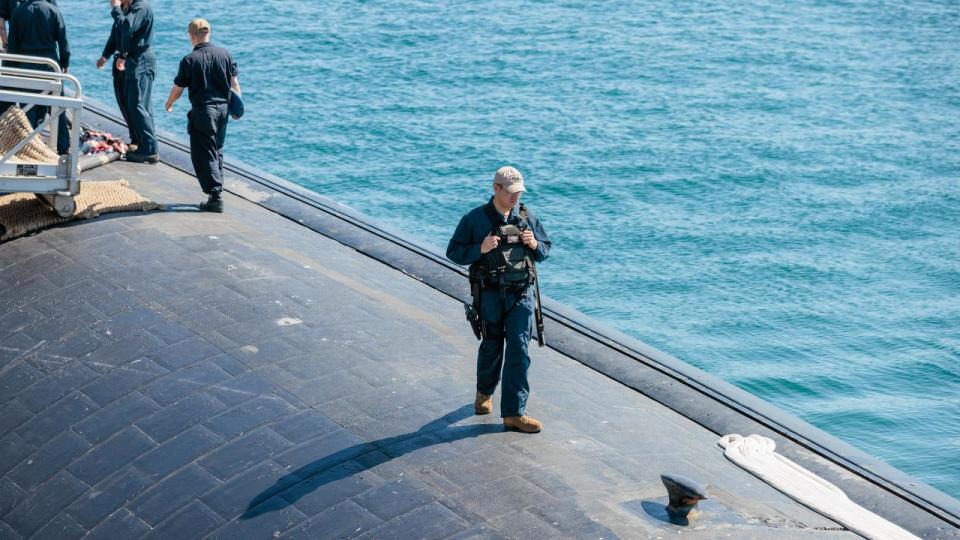Australians deploy for nuclear sub training mission
The first workers tasked with maintaining and operating Australia's future nuclear-powered submarines have been sent to the US for training.
The cohort of 30 skilled submarine workers from the government's ASC shipbuilding company departed for Pearl Harbor in Hawaii to get hands-on experience maintaining US Virginia-class undersea vessels.
More than 100 ASC workers are expected to be sent overseas by mid-2025 for naval propulsion skilling.
Once they complete their training, the workers will return to Western Australia where they will take up key roles to train other workers and lead the maintenance of rotating US and UK nuclear-powered submarines.
A UK Astute-class submarine and up to four US Virginia-class submarines will be on rotation at WA's HMAS Stirling base.

The program supports local industry gaining experience before Australia acquires its own Virginia-class submarines and the subsequent entry of the AUKUS nuclear submarines.
Australia will buy at least three Virginia-class vessels from the US from early next decade under the trilateral AUKUS agreement that also includes Britain.
The three nations are co-operating on a new class of submarines, the SSN AUKUS, which Australia is set to acquire in the 2040s.
As part of the submarine construction process, Australia will hand $4.6 billion to the British shipbuilding industry to boost capacity at the Rolls-Royce factory in Derby and bankroll the design costs of the boats that Australia will build.
While defence firm BAE Systems will build the submarines at the Osborne shipyards in Adelaide, the nuclear reactors used to propel the vessels will be made by Rolls-Royce in the UK.
The submarines will be constructed from a UK design with input from the AUKUS nations, and have a US weapons system embedded.
Defence Minister Richard Marles hailed the international AUKUS placements as an exciting once-in-a-lifetime opportunity for Australians to gain unique education, training and career development.
"These highly skilled workers already have decades of combined submarine experience having sustained our Collins class submarines and now have the opportunity to be upskilled by our US counterparts in sustaining nuclear-powered submarines," he said.
"Such unique education and training opportunities for Australian workers reflect the rock-solid commitment of our US and UK partners to our nation-building AUKUS program."
ASC workers will continue maintaining Australia's Collins class submarines during transitions to a nuclear-powered fleet.
Australia will be among seven countries operating nuclear-powered submarines, and all nuclear submarine work will remain consistent with the nation's non-proliferation obligations.


